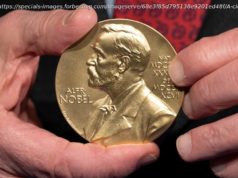ITV’s analysis can feel a bit like a breakfast debrief after a stag do: lots of ribbing and hooting but not much insight and reflection.
What is the point of the World Cup? Sometimes I think it’s to pay the mortgages of the Sky Sports double act Chris Kamara and Jeff Stelling. Sky isn’t showing any games from Russia, but during nearly every ITV commercial break Kamara and Stelling appear in the ads: gurning, eating pizza, flogging razors, imploring us to bet. Brian Blessed, whom I have now watched ride a bear into a pub to shill for a bookmaker close to a hundred times, is inescapable too. This is the problem with the World Cup on ITV. The football is often suffocated by the algorithmic corporate banter that pollutes much of the modern game. Its absence is one of the many advantages to watching on the BBC.
It isn’t that ITV’s coverage is bad – though the worst of its pundits and commentators do contrive to make it so. At first glance, little separates the two broadcasters: they both employ evocative title sequences, sets overlooking Red Square in Moscow and (0ver)familiar ex-pros doing the punditry. But despite poaching the better of the two Neville brothers (Gary), ITV can’t quite match the BBC. Its host, Mark Pougatch, is warm but bland compared to Gary Lineker, who has authority and insouciance. Lineker, an obsessive user of Twitter, keeps the egos in his studio in check in a way that Pougatch doesn’t always manage. ITV’s analysis can feel a bit like a breakfast debrief after a stag do: lots of ribbing and hooting but not much insight and reflection.
ITV’s team of pundits also lacks the freshness of the BBC line-up, which boasts Rio Ferdinand and Frank Lampard (both imported from BT Sport) as well as the Argentine Pablo Zabaleta. On ITV we instead see the same men playing the same old versions of themselves: Ian Wright is cheeky, Roy Keane moody, Martin O’Neill professorial, Slaven Bilic manic.
Yet the BBC is far from faultless. The introduction of the video assistant referee (VAR) has reduced some of its pundits, notably Alan Shearer, to confused clucking. And with both broadcasters it’s hard to shake off a sense that we’re watching a lads’ holiday. Martin Keown, the former Arsenal defender, knows all the bars in Kaliningrad, Lee Dixon loves swimming in the Black Sea. Can we talk about the football please?
Worse still is the creeping belief that the pundits are a spectacle in their own right: we frequently see footage of them reacting to goals. Does nobody ever think how bewildering all this laddish repartee is to those of us who pay attention to football only once every four years? The overdue introduction of female pundits – Eni Aluko at ITV and Alex Scott at the BBC – briefly suggested as if it might curb the inanity. But despite their impressive performances they have been underused, and patronised by some of their male counterparts. One grim moment saw Aluko sarcastically applauded by the abrasive Patrice Evra, a French international, and the worst pundit at the tournament.
At regular intervals and regardless of which team is actually playing, attention inevitably turns to Gareth Southgate, the England coach. Here the BBC abandons all pretence at impartiality. No pedestal is too high for Southgate’s team. The BBC’s roving interviewer Gabby Logan gently probes England’s young squad at their training base in the manner of a wise and friendly art teacher trying to encourage expression by watercolour. It’s pleasant enough – but other teams deserve attention too.
To the pundits’ disappointment, Vladimir Putin has mostly stayed helpfully out of shot – Boris Johnson predicted before the tournament that the Russian president would use the 2018 World Cup as Hitler did the 1936 Berlin Olympics – but they have struggled with what to say about Russia, the country and its politics.
ITV’s lead commentator Clive Tyldesley managed to restrain himself for a whole eight minutes of Russia’s opening game against Saudi Arabia (a 5-0 win) before paying tribute to Stalin’s “proper tache”. Lineker quipped that Spain couldn’t break through the “iron curtain” the Russians had drawn around their penalty area. “Everyone from the politburo to the proletariat,” would be watching the hosts’ second round tie, quipped the BBC’s Steve Wilson. Audibly pleased with himself, Wilson added: “These days, oligarchs to office clerks.”
It’s at times like these that football really misses John Motson or Barry Davies. Both could be relied on for intuitive lyricism at moments of drama. The likes of Wilson cannot. He and the BBC’s Guy Mowbray are easy on the ear but it will be a long time before either fills Motty’s sheepskin.
Nor can they can match ITV’s Sam Matterface for insufferable glibness and banality. Sweden’s goalkeeper, he noted, in one turn, is the same height as former Stars In Their Eyes host Matthew Kelly – a cruel reminder of ITV’s lost ability to entertain.
No matter how bad it gets, however, we should probably be grateful. A miserable November and December in Qatar looms for the next World Cup in 2022, with a 48-team North American saga to follow in 2026. I bet you can’t wait.
Patrick Maguire writes for newstatesman.com






